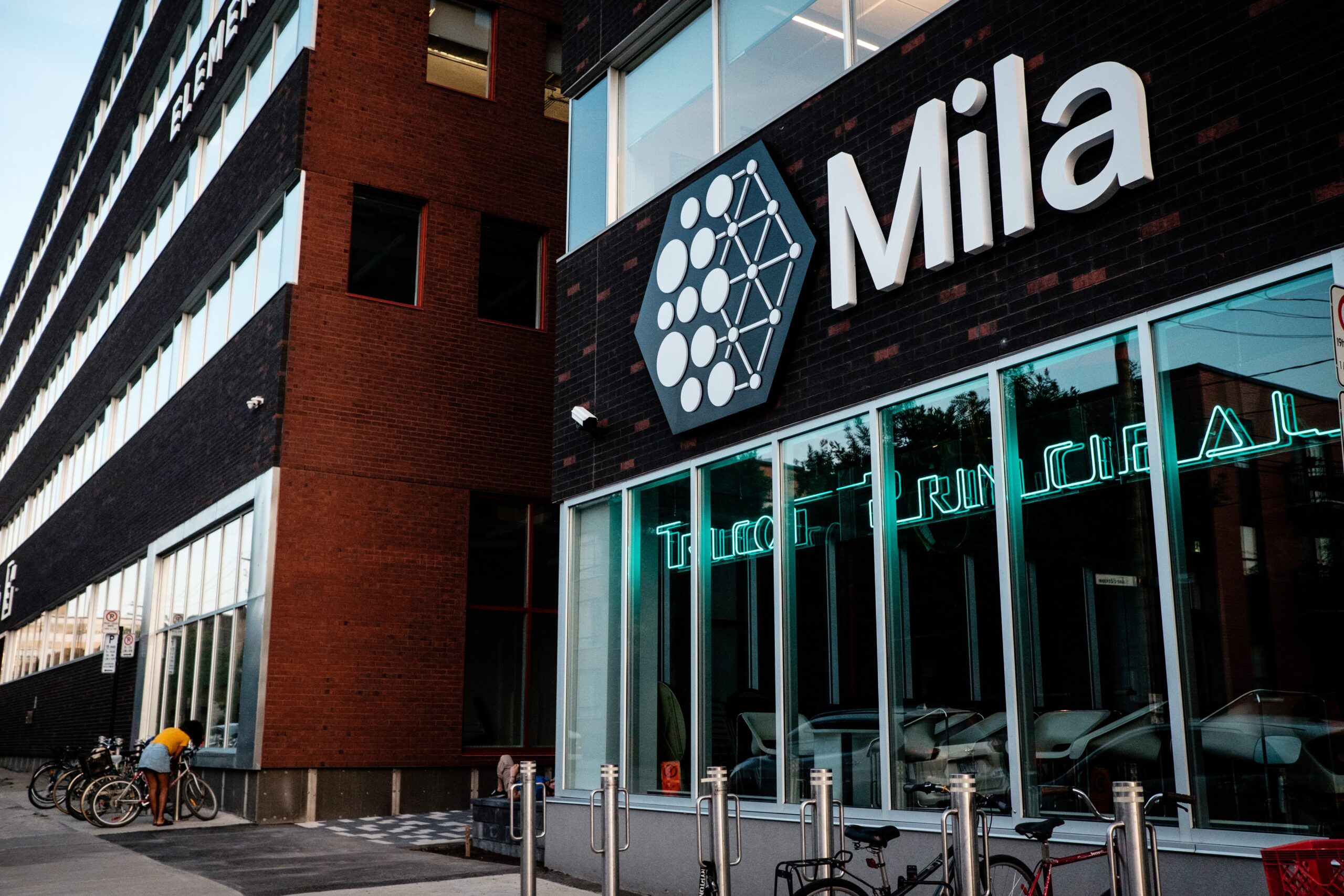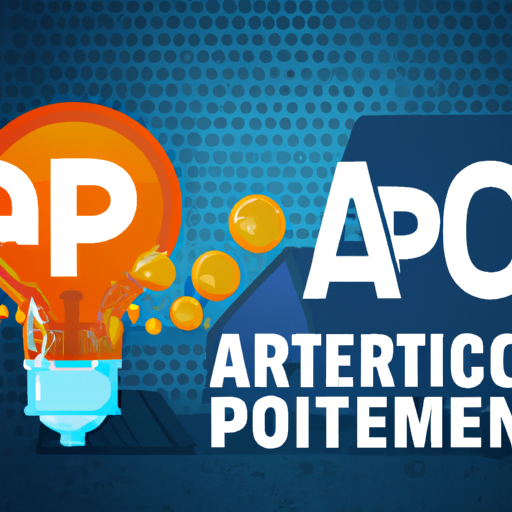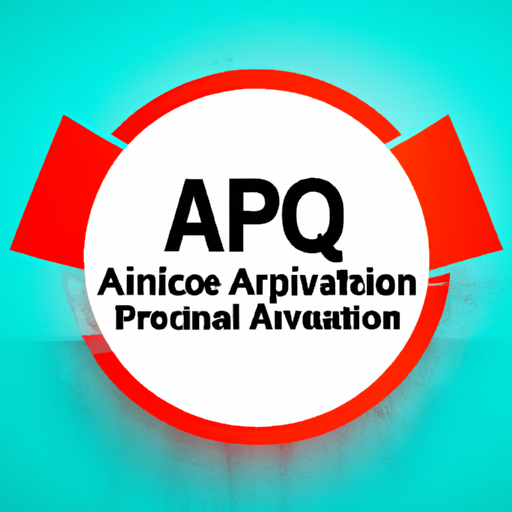
Are you looking to maximize your earnings from your PPC campaigns? Look no further! In this article, we will explore how to effectively use AI to optimize your PPC campaigns for maximum profitability. With the help of AI technology, you can harness the power of data analysis, machine learning, and automation to fine-tune your campaign strategies, target the right audience, and achieve outstanding results. Get ready to take your PPC campaigns to the next level and watch your earnings soar!
Understanding PPC Campaigns
What is PPC?
PPC, or pay-per-click, is an online advertising model where advertisers pay a fee each time their ad is clicked. It is a way to drive traffic to websites and increase visibility in search engine results pages (SERPs). PPC campaigns typically involve bidding on keywords relevant to the target audience and creating compelling ads that encourage click-throughs.
How do PPC campaigns work?
PPC campaigns work by utilizing a bidding system to determine which ads appear in search engine results. Advertisers bid on specific keywords that they believe their target audience will use when searching for products or services. When a user enters a search query containing these keywords, an auction takes place to determine which ads are shown. The ads that win the auction appear prominently in the search results, and the advertiser is charged when someone clicks on their ad.
Why is PPC important for businesses?
PPC is essential for businesses because it allows them to reach their target audience directly, drive qualified traffic to their websites, and increase brand visibility. Unlike traditional advertising methods, PPC campaigns provide measurable results, allowing businesses to track their return on investment (ROI) effectively. Additionally, PPC enables businesses to have control over their budget by setting daily or monthly spending limits, ensuring cost-effective advertising.
Challenges in PPC Campaign Optimization
Managing keyword selection and bids
One of the main challenges in PPC campaign optimization is selecting the right keywords and managing bidding strategies effectively. Choosing relevant keywords that align with the target audience’s search intent is crucial for driving qualified traffic. It requires careful research and analysis to identify high-performing keywords that have a reasonable bid competition. Additionally, continuously monitoring and adjusting bids based on performance data is essential to ensure optimal ad placement and cost-efficiency.
Creating effective ad copy
Crafting engaging and persuasive ad copy is another challenge in PPC campaign optimization. Advertisers must create ad content that grabs the attention of potential customers, clearly communicates the value proposition, and compels them to click. It requires understanding the target audience’s motivations and pain points and tailoring the ad copy accordingly. A well-crafted ad copy can significantly improve click-through rates and conversions.
Optimizing landing pages
The effectiveness of a PPC campaign depends not only on the ad itself but also on the landing page it directs users to. Optimizing landing pages involves creating a seamless user experience, ensuring relevance to the ad and search query, and providing valuable content that encourages conversions. Additionally, factors such as page load speed, mobile responsiveness, and clear call-to-action elements play a crucial role in landing page optimization.
Monitoring and tracking campaign performance
Monitoring and tracking campaign performance is vital for identifying areas of improvement and making data-driven decisions. PPC campaigns generate a significant amount of data, including click-through rates, conversion rates, cost per click, and more. Analyzing this data allows advertisers to understand which keywords, ads, and landing pages are performing well and which ones need optimization. However, it can be challenging and time-consuming to manually analyze and interpret this data, especially in larger campaigns.

Introduction to Artificial Intelligence (AI) in PPC Campaigns
What is AI in PPC?
Artificial Intelligence (AI) refers to the simulation of human intelligence in machines, allowing them to perform tasks that would typically require human intervention. In the context of PPC campaigns, AI can be leveraged to automate and optimize various aspects of the campaign, using algorithms to analyze vast amounts of data and make data-driven decisions in real-time.
Benefits of using AI in PPC campaigns
Using AI in PPC campaigns offers several benefits. Firstly, AI can process and analyze data at a speed and scale that surpasses human capabilities. This enables AI algorithms to identify patterns, trends, and insights that might go unnoticed by manual analysis alone. Secondly, AI enables automation, freeing up time for advertisers to focus on strategic planning and creative aspects of the campaign. Thirdly, AI can make predictions and recommendations, helping advertisers optimize their campaigns for maximum effectiveness.
Common AI techniques used in PPC optimization
There are several common AI techniques used in PPC optimization. Machine learning, a subset of AI, enables algorithms to analyze historical campaign data and adapt bidding strategies based on performance trends. Natural Language Processing (NLP) allows AI algorithms to understand and interpret user query intent, ensuring ads are shown to the most relevant audience. Deep learning, another subset of AI, enables algorithms to identify and leverage complex patterns in data to improve targeting and ad personalization.
Using AI for Keyword Research and Selection
Automated keyword discovery
AI can automate the process of discovering new keywords by analyzing search query data and identifying patterns or related terms. By examining historical search data and user behavior, AI algorithms can suggest additional keywords that are both relevant to the campaign’s objective and have significant search volume. This automation saves advertisers time and effort in manually researching and identifying relevant keywords.
Keyword performance analysis
AI can analyze the performance of keywords in a PPC campaign at a granular level. By evaluating metrics such as click-through rates, conversion rates, and return on ad spend (ROAS), AI algorithms can identify which keywords are driving valuable traffic and conversions. This analysis enables advertisers to make informed decisions on bid adjustments, budget allocation, and keyword refinement for optimal campaign performance.
Identifying long-tail keywords
Long-tail keywords are more specific and focused keyword phrases that target a niche audience. AI algorithms can analyze user search patterns and identify long-tail keywords that have lower competition but still drive relevant traffic. By incorporating these long-tail keywords into a PPC campaign, advertisers can reach a highly targeted audience and increase the chances of conversion. AI’s ability to analyze large amounts of data makes it efficient in identifying these long-tail keyword opportunities.

Automating Bid Management with AI
Real-time bidding strategies
AI-enabled bid management tools can automate bid adjustments in real-time based on various factors, such as ad position, competitor bids, and conversion data. By continuously monitoring the performance of keywords, ads, and user behavior, AI algorithms can make informed decisions on bid amounts. Real-time bidding strategies help maximize ad visibility and ROI by ensuring optimal ad placement.
Setting bid limits based on performance data
AI can analyze historical performance data and set bid limits based on predefined goals or objectives. By analyzing conversion rates, cost per conversion, and other relevant metrics, AI algorithms can determine the appropriate bid limits to achieve desired outcomes. This automated bid management reduces the manual effort required and ensures bids are aligned with the campaign’s performance targets.
Utilizing predictive analytics for bid adjustments
AI can leverage predictive analytics to anticipate changes in user behavior and market dynamics. By analyzing historical data and external factors such as seasonality, trends, and competitor activity, AI algorithms can make predictions on future performance and adjust bids accordingly. This proactive approach to bid management helps advertisers stay ahead of the market and maintain a competitive edge.
Enhancing Ad Copy with AI
Generating personalized ad variations
AI can generate personalized ad variations by analyzing user behavior, demographics, and historical campaign data. By customizing ad elements such as headlines, descriptions, and call-to-actions, AI algorithms can create ad variations that resonate better with different segments of the target audience. This personalization improves ad relevance and increases the likelihood of click-throughs and conversions.
A/B testing with AI algorithms
A/B testing is a crucial aspect of ad optimization, and AI can streamline this process. AI algorithms can automate the creation and testing of multiple ad variations simultaneously, allowing advertisers to quickly identify the best-performing ads. By analyzing metrics such as click-through rates, conversion rates, and bounce rates, AI algorithms can determine which ad variations are most effective and recommend adjustments for further optimization.
Utilizing sentiment analysis for ad optimization
Sentiment analysis is the process of determining the emotional tone behind a piece of text. AI algorithms can analyze ad copy and landing page content to understand the sentiment conveyed and its impact on user engagement. By identifying emotions such as joy, surprise, or frustration, AI can provide insights on how to tweak ad copy to evoke desired user responses. Utilizing sentiment analysis in ad optimization can enhance the persuasive power of ads and drive better campaign outcomes.

Optimizing Landing Pages with AI
Dynamic landing page creation
AI can dynamically generate landing pages based on user intent and ad relevance. By analyzing ad copy, keywords, and user behavior, AI algorithms can create landing pages tailored to specific search queries. This dynamic landing page creation ensures a seamless user experience, reduces bounce rates, and increases the chances of conversions. AI can automatically update landing pages with new content or offers based on real-time data analysis.
Personalizing landing page content
AI can personalize landing page content based on user data, such as demographics, preferences, and browsing history. By leveraging machine learning algorithms, AI can deliver customized content that resonates with individual users, increasing engagement and conversion rates. Personalized landing page content enhances the user experience, builds trust, and improves the overall effectiveness of PPC campaigns.
Using AI for multivariate testing
Multivariate testing involves simultaneously testing multiple elements on a landing page, such as headlines, images, call-to-action buttons, and form designs. AI can automate and optimize this testing process by creating different combinations of these elements and analyzing their impact on user behavior. By comparing performance metrics, such as conversion rates and bounce rates, AI algorithms can identify the most effective combinations and recommend changes for landing page optimization.
Leveraging AI for Campaign Monitoring and Analysis
Real-time performance tracking
AI can provide real-time monitoring and tracking of campaign performance metrics, allowing advertisers to stay updated on key indicators of success. By continuously analyzing data and generating reports, AI algorithms can present campaign performance insights in a digestible format. Real-time performance tracking helps advertisers identify underperforming areas promptly, make necessary adjustments, and optimize campaign resources effectively.
Alerts and notifications for campaign issues
AI can be programmed to monitor campaign performance and send alerts or notifications when specific issues or anomalies are detected. For example, if a sudden spike in click fraud activity is detected, the AI algorithm can alert advertisers to take immediate action. This proactive approach helps advertisers mitigate risks and respond promptly to campaign issues, ensuring the campaign’s integrity and effectiveness.
AI-driven insights and recommendations
AI algorithms can provide valuable insights and recommendations based on campaign data analysis. By identifying patterns, trends, and correlations in data, AI can generate actionable recommendations to optimize campaign performance. Whether it’s adjusting bidding strategies, refining ad targeting, or improving landing page elements, AI-driven insights can guide advertisers in making data-backed decisions to maximize PPC campaign results.

Implementing AI in PPC Campaigns
Selecting the right AI tools or platforms
When implementing AI in PPC campaigns, it’s essential to choose the right AI tools or platforms that align with your campaign objectives and requirements. Consider factors such as the tool’s capabilities, ease of integration with existing systems, scalability, and customer support. Evaluate potential options, request demos or trials, and assess their suitability for your specific campaign needs before making a selection.
Integrating AI with existing PPC platforms
AI can be integrated with existing PPC platforms to enhance their functionality and automate various optimization processes. Many PPC platforms offer AI-driven features or integrations that enable advertisers to leverage AI algorithms without significant technical expertise. These integrations streamline the optimization workflow and provide seamless access to AI-powered features for efficient campaign management.
Training and fine-tuning AI models for optimal performance
To achieve optimal performance, it’s crucial to train and fine-tune AI models for your specific PPC campaign needs. This involves providing sufficient and relevant training data and setting performance benchmarks. Continuously monitor AI algorithms and refine their parameters based on campaign performance and evolving business requirements. Training and fine-tuning AI models ensure that they adapt and improve over time, maximizing their effectiveness in driving PPC campaign success.
Measuring Success and Evaluating ROI
Defining relevant KPIs
To measure the success of a PPC campaign, it’s essential to define relevant Key Performance Indicators (KPIs) that align with campaign objectives. Common PPC KPIs include click-through rates (CTR), conversion rates, cost per click (CPC), return on ad spend (ROAS), and customer acquisition cost (CAC). By tracking these metrics, advertisers can evaluate campaign performance, optimize strategies, and calculate ROI.
Analyzing campaign performance using AI
AI can analyze campaign performance data and provide comprehensive insights into various metrics and trends. By leveraging AI algorithms, advertisers can gain a deeper understanding of their campaign’s strengths and weaknesses. AI-powered analysis can identify the most effective keywords, ad variations, and landing page elements, guiding advertisers in making data-driven decisions to improve performance and increase ROI.
Calculating ROI and maximizing earnings
Calculating ROI is essential to determine the profitability of a PPC campaign. AI can assist in the calculation by analyzing campaign cost data, revenue generated, and other relevant financial metrics. By evaluating the campaign’s ROI, advertisers can make informed decisions on budget allocation, bid adjustments, and resource allocation to maximize earnings. AI-driven insights can help identify areas of improvement, optimize strategies, and generate higher returns from PPC campaigns.
In conclusion, AI offers tremendous potential for optimizing PPC campaigns and maximizing earnings. From automated keyword research to bid management, ad copy enhancement, landing page optimization, and campaign monitoring, AI can streamline and enhance various aspects of PPC campaign management. By leveraging AI algorithms and techniques, businesses can improve targeting, increase ad relevance, and achieve better ROI. As AI technology continues to evolve, its integration with PPC campaigns is likely to become increasingly critical for businesses looking to stay competitive in the digital advertising landscape.



